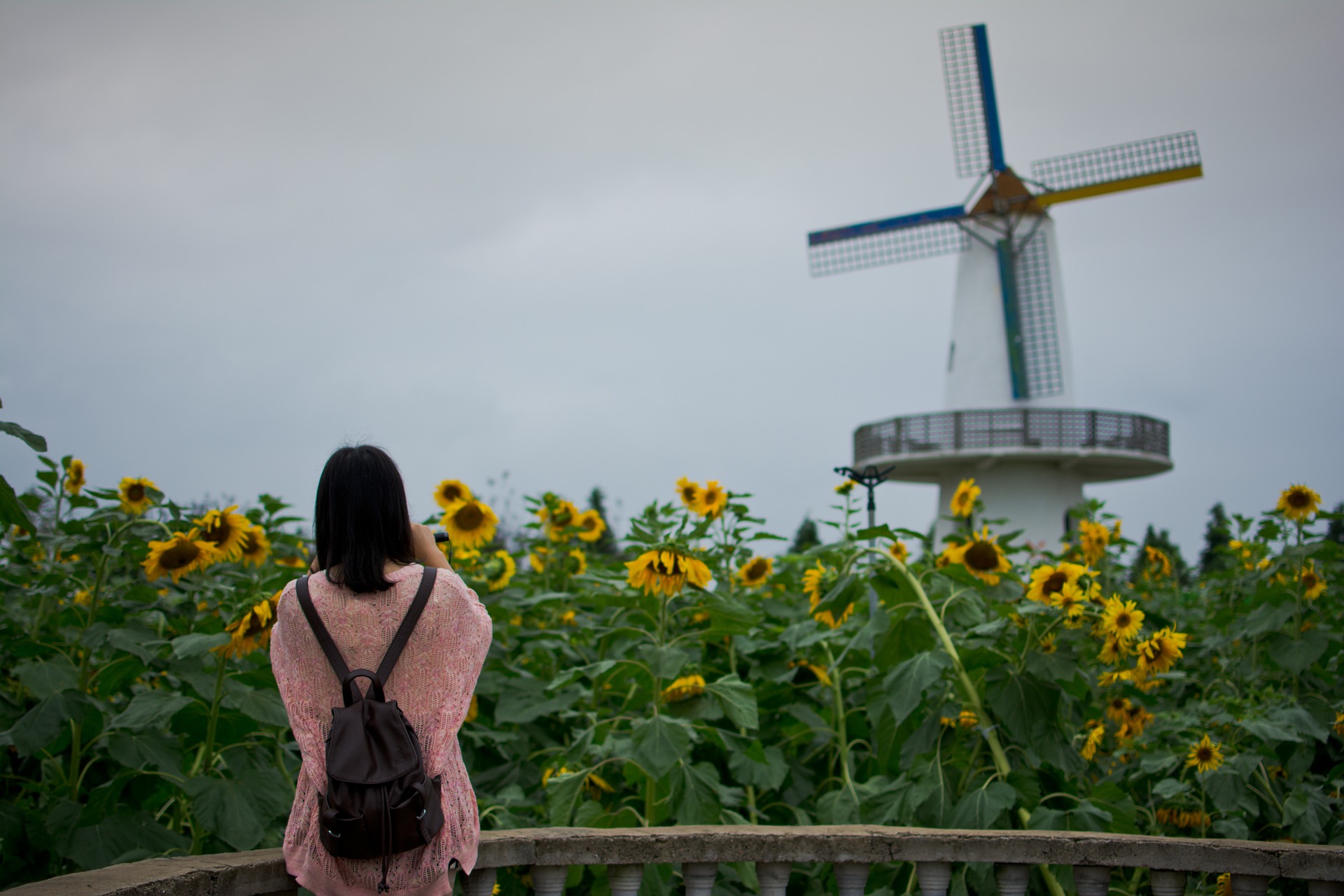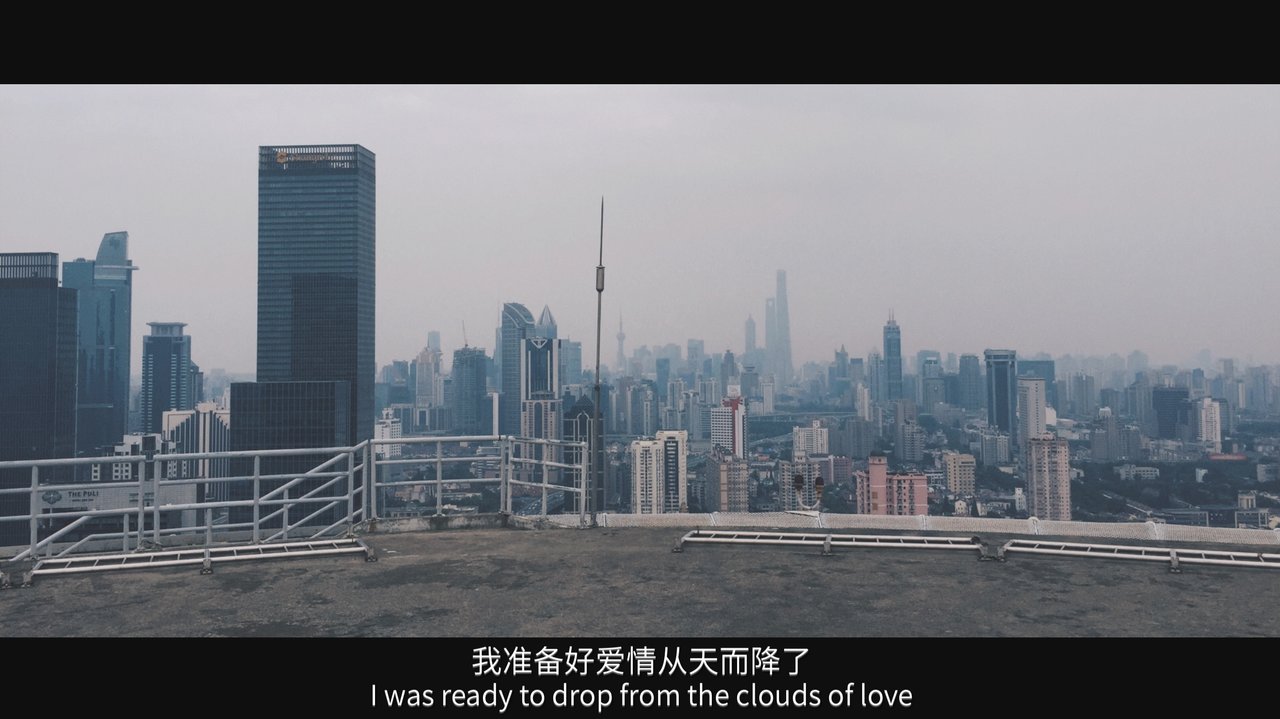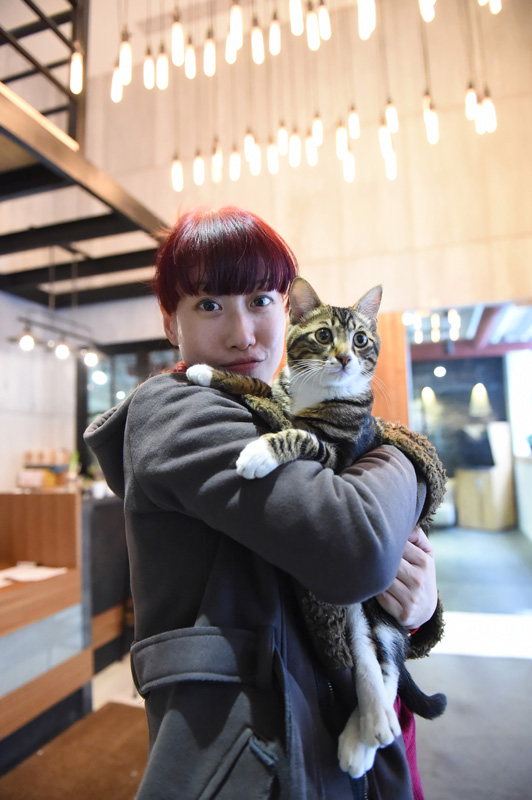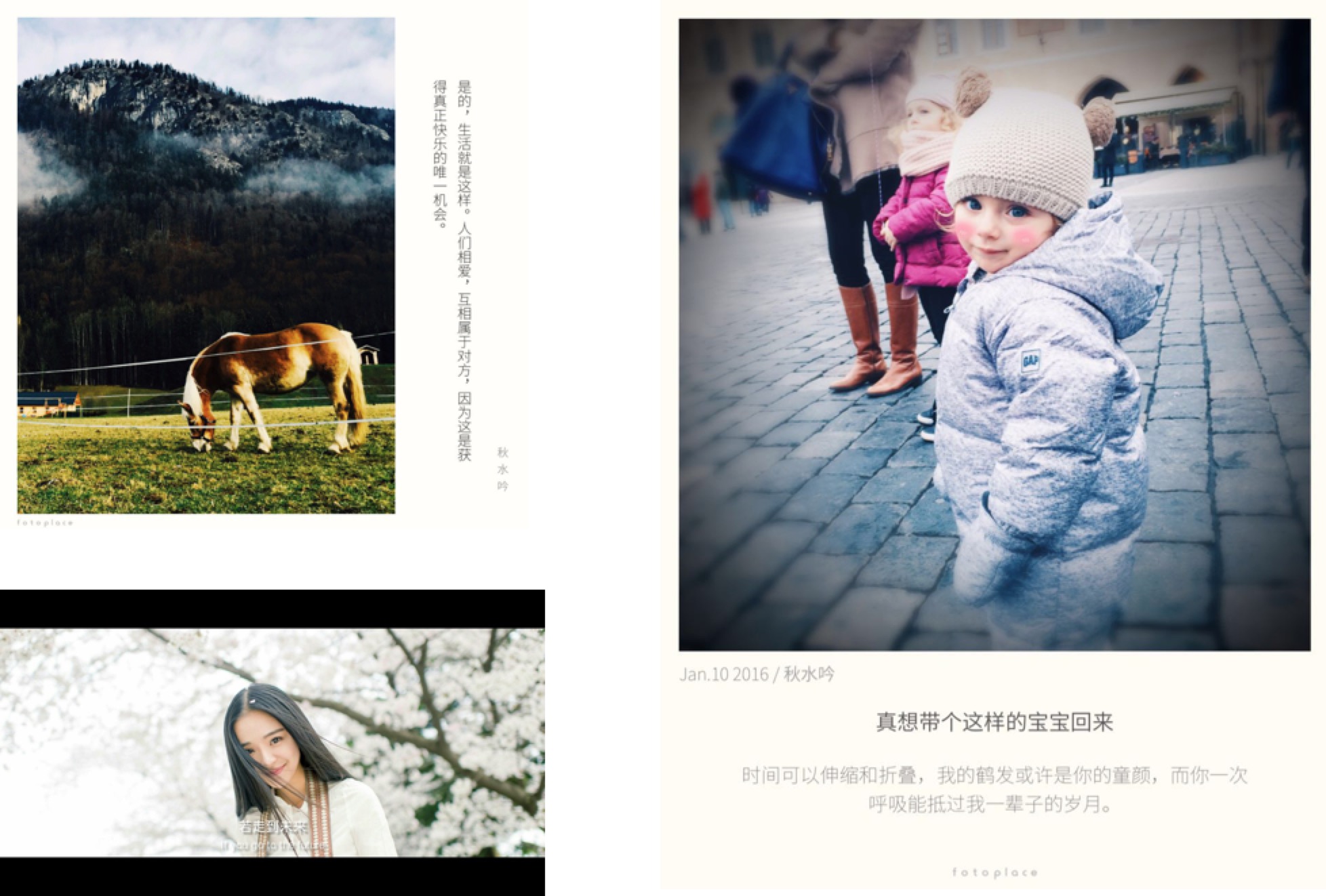
Windmill, sunflowers, Chinese hipster. Photo credit: small_grass.
Given China’s obsession with selfies, it’s hard to believe that an app designed for photographing your “inner self” could become popular, much less viral.
“In Asia, everyone can make themselves look great in photos. There are an unlimited number of apps that can help you edit your face into a she jing,” jokes Yang Liu, the founder ofFotoplace, a Shanghai-based startup comparable to Instagram. She jing, which literally translates to “snake demon”, refers to whitening and slimming one’s face in photo apps.
“If you took a photo of me without editing it, even I wouldn’t want to look at it,” she says, laughing. “So I get it. But there’s way too many of them.”
Last February, Fotoplace became viral almost overnight when it launched what would become its flagship feature: widescreen mode. It’s a simple function that edits photos to make them look like shots from a widescreen film. In China, this also means adding subtitles. Due to the variety of dialects in China, moviegoers are used to seeing subtitles in movies, even those in Mandarin. By adding subtitles to photos, Fotoplace lets users overlay one-liners onto their photos in a format that’s immediately recognizable.
“What I wanted was to be able to casually take a photo while documenting the feeling of a moment,” says Yang Liu. “In one glance, [the widescreen photo] contains a story. It feels cinematic. Your first thought is, ‘This is a movie; this is a story.'”

A widescreen photo on Fotoplace. Photo credit: Yang Liu.
Fotoplace’s app contains a database of quotes from various sources: books, movies, songs – even internet memes. Once users choose a photo, the app automatically picks a subtitle for the image. Users can also edit and write their own subtitles or flip through Fotoplace’s database. Subtitles come in both Chinese and English, though the latter is automatically translated (with varying degrees of coherence).
“Fotoplace has always tried to achieve one thing,” says Yang Liu. “I want it to be the number one application in China that lets users use images to express their inner self.”
She describes a photograph on Fotoplace that only shows a solid, black rectangle. “2:03 in the morning, I’m all alone,” it says. Sans subtitle, it looks as if the photographer accidentally blocked the lens with his thumb. With that one line of text, however, there’s a narrative, says Yang Liu. The photo becomes a story about being lonely in the middle of the night.
Hipster power
In many ways, Fotoplace’s success rides on a growing mass of Chinese hipsters known as “little clean and fresh” in Chinese. It’s a new generation of artsy intellectuals, born out of the country’s indie pop movement and shaped by the One Child Policy and Douban, a Chinese social networking site where users discuss lifestyle and cultural topics.
They’re like hipsters from other countries – they shun mainstream culture and live bougie lifestyles – except more precious. As the name suggests, a typical “little clean and fresh” will wear pastel-colored clothing and have a penchant for cheesy, sentimental statements. Most of these hipsters belong to a young demographic with some being mere tweens.
“They’re very imaginative. They have a strong desire to express their inner self,” explains Yang Liu. “They like to socialize, but they can also appreciate solitude. […] They are good at finding beauty in everyday life.”

Yang Liu, founder of Fotoplace. Photo credit: Fotoplace.
By combining film, photography, and sentimentality, Fotoplace became the perfect photo editing tool for China’s hipsters. It also helped that Instagram had been blocked in mainland China half a year before widescreen mode launched. Within a matter of weeks, Fotoplace grew from hundreds of thousands of users to millions, topping domestic app charts. The startup’s technical team scrambled to deal with the unexpected surge of users, while other team members dealt with the onslaught of investors and reporters that flooded into the co-working space.
“The front desk was going crazy,” recalls Yang Liu. “A lot of people came in just to watch us, as if we were in a zoo. Everyone was trying to guess who Yang Liu was. They thought I was a man.”
“Once, when I was outside by the door smoking, someone asked me if Fotoplace was inside,” she continues. “They asked, ‘Do you know who Yang Liu is?’ I said, ‘Not really.’ […] I didn’t dare admit who I was.”
A few months later, the startup raised a US$10 million series A round from Sequoia Capital, Chengwei Capital, and Lighthouse Capital. It was a huge boost from the angel investment they received a year earlier, which was just under US$300,000.
Beyond Instagram

Photo credit: Fotoplace.
Since then, the app has slowly evolved into a replica of Instagram, complete with captions, video content, and various photo editing tools and filters. Even its monetization strategy is the same – it relies on advertising revenue from corporate Fotoplace accounts.
Ironically, Yang Liu never wanted Fotoplace to be the Instagram of China when it was founded in 2014, despite the country’s need for quirky, unique content. In fact, her original goal was to combine tourism and film, not photography and film, by curating travel itineraries that traced important scenes from different movies. That’s why Fotoplace’s Chinese name is zu ji, which means footprint. However, those plans were put on hold when Fotoplace’s widescreen feature took off.
“Every time I talk to investors about [the travel app], they don’t get it,” says Yang Liu. “Now I don’t even talk to them about it. I’ve told them that no matter what, I’m going to do this.”
Last year, Chinese tourists spent a whopping US$215 billion while on holiday abroad, surpassing tourists from all other countries. But that doesn’t mean that the country’s tourism industry is ready for something as niche as Fotoplace’s movie travel app, which is slated to launch next year. China’s tourism industry is still dominated by a few key players, such as Tuniu and Qunar. Yang Liu admits that it might take four or five years before the industry is ready for more niche products that don’t rely purely on volume to generate profit.
“Even if we’re doomed to fail, I still want to try to make this product,” she says. “If we wait any longer, we might run out of cash.”
For now, Fotoplace remains dedicated to the coffee-sipping, photography-obsessed hipsters of China. As the country’s social media landscape shifts towards livestreaming and WeChat, the startup’s bet on China’s rapidly growing tourism industry could be the right decision.








